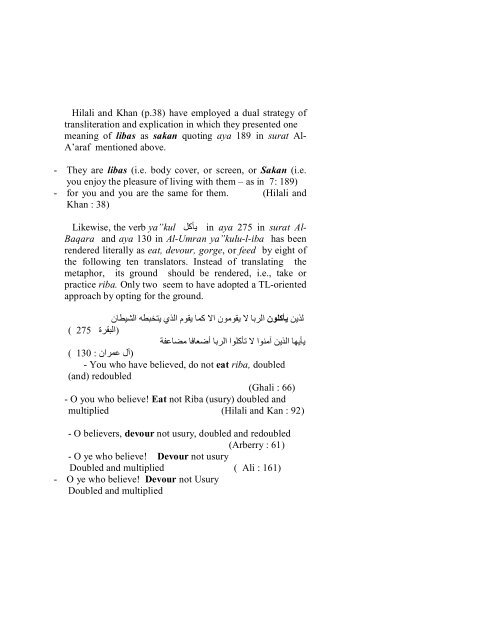424_2061_A.B.
424_2061_A.B.
424_2061_A.B.
- No tags were found...
You also want an ePaper? Increase the reach of your titles
YUMPU automatically turns print PDFs into web optimized ePapers that Google loves.
Hilali and Khan (p.38) have employed a dual strategy oftransliteration and explication in which they presented onemeaning of libas as sakan quoting aya 189 in surat Al-A’araf mentioned above.- They are libas (i.e. body cover, or screen, or Sakan (i.e.you enjoy the pleasure of living with them – as in 7: 189)- for you and you are the same for them. (Hilali andKhan : 38)Likewise, the verb yakul in aya 275 in surat Al-Baqara and aya 130 in Al-Umran yakulu-l-iba has beenrendered literally as eat, devour, gorge, or feed by eight ofthe following ten translators. Instead of translating themetaphor, its ground should be rendered, i.e., take orpractice riba. Only two seem to have adopted a TL-orientedapproach by opting for the ground. ( 275 )( 130 :)- You who have believed, do not eat riba, doubled(and) redoubled(Ghali : 66)- O you who believe! Eat not Riba (usury) doubled andmultiplied (Hilali and Kan : 92)- O believers, devour not usury, doubled and redoubled(Arberry : 61)- O ye who believe! Devour not usuryDoubled and multiplied ( Ali : 161)- O ye who believe! Devour not UsuryDoubled and multiplied92
















